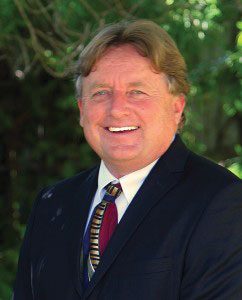Gene technology raises ethical questions
IN THIS ARTICLE
- Health Care & Life Science Topic
- Guest commentary Author
By Guest commentary Friday, March 10th, 2017

Frank Kalman
By Frank Kalman
A relatively obscure talk about genes was given at UC Santa Barbara recently by Dr. Siddhartha Mukherjee, a researcher and clinical oncologist at Columbia University and author of a Pulitzer Prize winning book, the “Emperor of all Maladies: A Biography of Cancer.”
It was, however, on par in terms of gravity with talks many decades ago by the founders of the A-bomb, who espoused the benefits of radiation and harnessing the atom but also spoke of the dark side of splitting the atom.
Mukherjee spoke of engineering genes, of the huge life-saving potential but also of the dark side of gene manipulation.
He began by giving background on what a gene is: a unit of hereditary information that carries information to specify biological function. You might imagine genes as a set of master instructions carried between cells and between organisms that tell it how to build, maintain, repair and reproduce itself. It controls everything about us: the color of our eyes, our height and our intellect.
Mukherjee posed this question to the audience: If you knew your unborn child had an 80 percent chance of having autism, would you abort? Would you abort at 50 percent? At 25 percent?
Until recently, scientists were only able to determine if an embryo was predisposed to a serious disease. Now technologies are evolving, such as CRISPR, which allow scientists to edit malfunctioning genes causing these diseases.
Mukherjee discussed a recently released report from the National Academy of Sciences panel that proposes guidelines for gene editing. The report proposes that human embryo editing might be permissible if there are no other reasonable alternatives for treatment or prevention, the gene(s) being altered result in a serious disease or condition, or the genes cause or strongly predispose a person to that disease or condition.
Picture a woman told that she carries a mutation in her BRCA-1 gene, so she has a 60 to 70 percent chance of developing breast or ovarian cancer during her lifetime.
Concerned that this not be a burden for her unborn children and descendants, she seeks to have the mutated gene removed.
According to the NAS panel, she doesn’t automatically qualify for genetic engineering. The conditions in the report are not absolutely clear and are subject to interpretation.
Then there is the issue of genetic engineering for the purpose of enhancement. This was the scariest part of Mukherjee’s entire presentation — human enhancement to increase a child’s muscle mass and athletic ability or to boost intelligence.
The NAS panel’s report is firmly against the use of gene editing for human enhancements but this is where Mukherjee raises red flags. He said the rich will have the ability to conduct the testing and pay for the genetic engineering not only to avoid disease but also for enhancements.
After 50 or 500 years of this, two groups of human beings will exist — the enhanced and the unenhanced.
The NAS report encourages government bodies to conduct public discussion and policy debate. Gene editing truly requires smart and strong federal regulation. We are at a very critical juncture in the history of humanity, just like we were in the 1940s with the atom.
This new gene technology could not have presented itself at a worse time. The Trump administration’s chief adviser, Stephen Bannon, recently told the Conservative Political Action Conference, “If you look at these cabinet nominees, they were selected for a reason, and that is destruction, destruction of the administrative state.” In other words, they were selected to destroy their respective regulatory agencies.
We must be extremely grateful for Mukherjee’s effort to ring the alarm bell in an effort to make us aware of this critical juncture in our history. There are extremely complicated ethical questions that require extremely thoughtful solutions. They will also require strongly enforced federal regulation.
• Frank Kalman is the executive director of the Kids’ Cancer Research Foundation in San Luis Obispo. You can contact him at [email protected].












